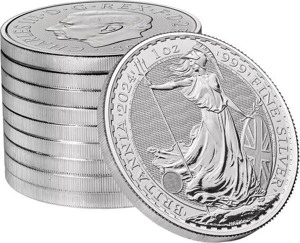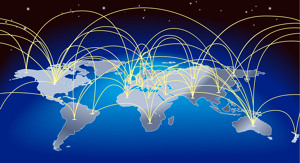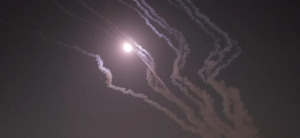Tavex uses cookies to ensure website functionality and improve your user experience. Collecting data from cookies helps us provide the best experience for you, keeps your account secure and allows us to personalise advert content. You can find out more in our cookie policy.
Please select what cookies you allow us to use
Cookies are small files of letters and digits downloaded and saved on your computer or another device (for instance, a mobile phone, a tablet) and saved in your browser while you visit a website. They can be used to track the pages you visit on the website, save the information you enter or remember your preferences such as language settings as long as you’re browsing the website.
| Cookie name | Cookie description | Cookie duration |
|---|---|---|
| tavex_cookie_consent | Stores cookie consent options selected | 60 weeks |
| tavex_customer | Tavex customer ID | 30 days |
| wp-wpml_current_language | Stores selected language | 1 day |
| AWSALB | AWS ALB sticky session cookie | 6 days |
| AWSALBCORS | AWS ALB sticky session cookie | 6 days |
| NO_CACHE | Used to disable page caching | 1 day |
| PHPSESSID | Identifier for PHP session | Session |
| latest_news | Helps to keep notifications relevant by storing the latest news shown | 29 days |
| latest_news_flash | Helps to keep notifications relevant by storing the latest news shown | 29 days |
| tavex_recently_viewed_products | List of recently viewed products | 1 day |
| tavex_compare_amount | Number of items in product comparison view | 1 day |
| Cookie name | Cookie description | Cookie duration |
|---|---|---|
| chart-widget-tab-*-*-* | Remembers last chart options (i.e currency, time period, etc) | 29 days |
| archive_layout | Stores selected product layout on category pages | 1 day |
| Cookie name | Cookie description | Cookie duration |
|---|---|---|
| cartstack.com-* | Used for tracking abandoned shopping carts | 1 year |
| _omappvp | Used by OptinMonster for determining new vs. returning visitors. Expires in 11 years | 11 years |
| _omappvs | Used by OptinMonster for determining when a new visitor becomes a returning visitor | Session |
| om* | Used by OptinMonster to track interactions with campaigns | Persistent |
| Cookie name | Cookie description | Cookie duration |
|---|---|---|
| _ga | Used to distinguish users | 2 years |
| _gid | Used to distinguish users | 24 hours |
| _ga_* | Used to persist session state | 2 years |
| _gac_* | Contains campaign related information | 90 days |
| _gat_gtag_* | Used to throttle request rate | 1 minute |
| _fbc | Facebook advertisement cookie | 2 years |
| _fbp | Facebook cookie for distinguishing unique users | 2 years |
How Do Geopolitical Events Influence Silver Prices?

Geopolitical tensions have a profound impact on the global economy, affecting everything in the commodities market from currency values to commodity prices. Among these commodities, silver holds a unique position due to its dual role as both an industrial metal and a precious investment asset.
This article delves into how geopolitical events influence silver prices, exploring the dynamics of war and conflict, economic sanctions and trade agreements, the role of investor sentiment, and the long-term effects on the silver bullion market.
The Impact of War and Conflict on Silver Prices

War and conflict often lead to immediate, sharp increases in silver prices. This is primarily due to the uncertainty and instability that wars introduce to global markets.
In times of conflict, investors tend to move their capital into safer assets, and silver, with its long history as a store of value, has become a preferred choice
The demand surge, coupled with potential disruptions in silver mining operations in conflict zones, can significantly reduce supply, further driving up prices.
Historical instances, such as during World War II or more recent conflicts in the Middle East, have shown how quickly silver prices can rise amid military tensions. Take a look at the live silver price chart over the years, throughout geopolitical events, here.
Economic Sanctions and Trade Agreements on Silver Prices

Economic sanctions and trade agreements also play crucial roles in shaping silver prices. Sanctions against major silver-producing countries can constrain the global silver supply, leading to price increases.
Conversely, trade agreements that facilitate the smoother exchange of goods and services, including silver, can increase supply and potentially lower prices.
However, the anticipation and speculation surrounding these geopolitical manoeuvres can cause market volatility, affecting silver prices even before any real impact on supply or demand occurs.
The Role of Investor Sentiment

Silver’s reputation as a safe-haven asset significantly contributes to its price dynamics in times of geopolitical uncertainty. When geopolitical events escalate, the ensuing economic uncertainty drives investors toward assets that traditionally maintain value. This can be seen post covid-19 where silver price experienced a sudden jump.
Silver benefits from this shift in investor sentiment, experiencing price increases as demand for silver as a safe assets spikes. This movement is not just a testament to silver’s intrinsic value but also to its perceived stability in turbulent times.
Silver acts independently from stock markets making silver investing a popular choice, along with its precious metal counter part gold.
Speculation and Market Volatility
Speculation and market volatility are intimately linked to silver price fluctuations, especially in the context of geopolitical events. Traders and investors often react to news of potential conflicts, sanctions, or trade deals by speculating on their possible outcomes.
This speculation can lead to increased market volatility, with prices swinging dramatically in response to new information or rumours.
The speculative nature of markets means that even the hint of geopolitical tension can cause significant price movements, independent of the actual impact on silver supply or demand.
Long-Term Effects of Geopolitical Events

Structural Market Changes
Geopolitical events can lead to structural market changes that have long-term effects on silver prices. For instance, sustained geopolitical tensions can alter trade routes, lead to the development of new mining operations in more stable regions, or change the regulatory environment for silver trading.
Altered trade routes may increase the cost of transport making the buying and selling costs higher having a knock on effect
These structural changes can affect both the supply side (by making silver more or less available) and the demand side (by changing the industries and technologies that use silver), thereby influencing prices in the long term.
Stability and Recovery
Despite the short-term volatility caused by geopolitical events, silver has demonstrated a remarkable ability to stabilise and recover over the long term. This resilience is partly due to silver’s industrial demand, which provides a baseline level of consumption that can buffer against purely speculative price drops.
Moreover, silver’s intrinsic value as a precious metal contributes to its recovery, as investors continue to see it as a valuable asset in diverse economic conditions.
Over decades, silver has shown that while it may experience significant price fluctuations in response to geopolitical events, its fundamental value allows for stability and recovery in the long term.
Key Takeaways
- The interplay between geopolitical events and silver prices is a complex dance of supply and demand, investor sentiment, and market speculation.
- From the immediate impacts of war and conflict to the long-term effects of structural market changes, geopolitical tensions undeniably shape the amount of silver demand in the silver market and the silver spot price.
- Understanding these dynamics offers valuable insights for investors and underscores the importance of considering global events when analysing the precious metals market.
- Silver, with its dual appeal as an industrial metal and a safe-haven asset, remains a fascinating subject for both buyers and sellers interested in the nexus of geopolitics and commodity investments.
FAQs
1) Is the price of gold also affected by geopolitical events?
Yes, the price of gold and silver are influence by geopolitical events. If you would like to learn more about this, take a look here.
2) Can silver be considered a safe investment from other economic factors?
Yes, silver is considered a safe investment along with its precious metal counter part – gold. To learn more about how silver is considered a safe haven asset, read more here.
3) What is silver used for (industrial use as well as personal significance)?
Silver is an important metal in various industrial sectors, thanks to its unique properties that make it a valuable component in modern technology and manufacturing processes, for example, in solar panels. To read more about this topic take a look here.


















